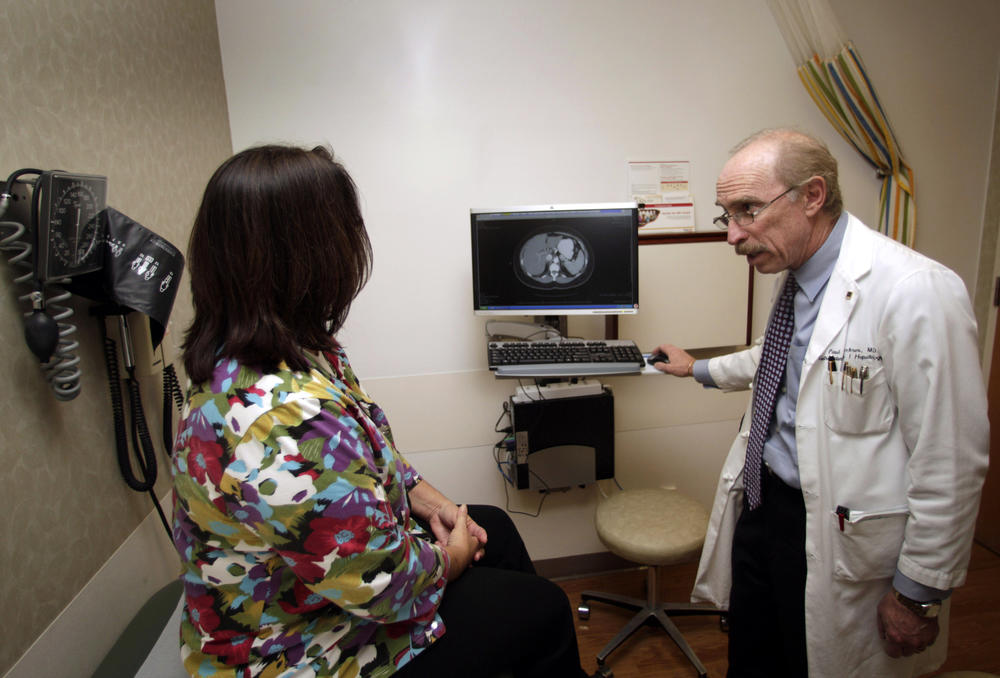
Caption
Dr. Paul J. Pockros, head, Division of Gastroenterology/ Hepatology and director, Liver Disease Center, talks with patient Loretta Roberts as they view her liver on a computer screen in his exam room at Scripps Green Hospital in San Diego, in this photo taken Jan. 13, 2011. Health experts are now recommending all adults and pregnant women to be tested for HCV.
Credit: (AP Photo/Lenny Ignelzi, File)


